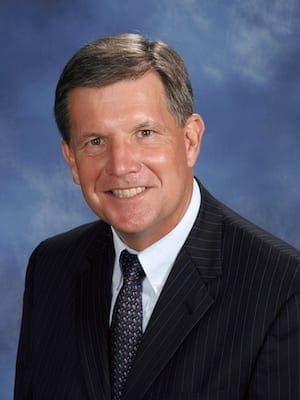Every election year, pastors are faced with the challenge of how to address political issues fairly and legally from the pulpit. While some on both the left and the right attempt to hijack the pulpit in order to support their cause or their favored candidate, many of us in ministry strive to encourage members to participate in the political process without instructing members about how to vote.
As a pastor, I have observed half dozen presidential elections, numerous local elections, and dozens of referendums. Early in my ministry, thanks to wise mentors, I committed to a strategy for dealing pastorally with political issues from the pulpit.
This strategy is based on four objectives: (1.) To maintain a non-partisan pulpit. (2.) To recognize the separation of church and state. (3.) To respect the political diversity within the congregation. (4.) To honor the biblical texts on the role of government in a given culture.
Even this week, news agencies around the nation are reporting accounts of ministers who publicly endorse candidates from the pulpit, of churches who provide values-based (biased) voters’ guides and of churches who have invited political candidates or their spokespersons to speak in Sunday worship services. To me, all of the above seem to be abuses of pastoral privilege and a violation of a pastor’s civil and spiritual responsibility.
If blatant partisan political activism in the pulpit is inappropriate, what is an appropriate and proactive strategy for addressing election-related issues from the pulpit without being politically partisan?
One pastoral initiative is to encourage members to vote. Words like these have frequented my sermons as election time nears: “We are blessed to live a country that values political and religious freedom, and you have both the opportunity and responsibility to participate in the electoral process as you vote your convictions.” I have never suggested to a church member, either explicitly or implicitly, how they should vote, only that they should vote. In fact, I have never revealed to a congregation the name of the candidate I intend to vote for. (Actually, I do not even tell my wife which candidate I plan to vote for.)
A second pastoral initiative is to challenge church members to pray for their elected leaders. I believe that persons of faith should pray for their political leaders, whether they approve of a leader’s performance or not. Additionally, I also encourage church members to pray for candidates seeking office. Choosing to seek public office requires tremendous sacrifice and takes it toll on a candidate’s entire family whether they win or lose.
Finally, I invite church members to consider running for public office. Just as I invite members to consider a vocation ministry, mission service or a host of other careers, I also invite members to consider political service as a part of their spiritual calling. I have been privileged to serve as pastor to candidates on the local, state and national level, many of whom were elected and enjoyed multiple terms of effective service. Although an individual should never enter the political arena naively, many individuals find political office to be a high impact avenue of service.
Although the Bible instructs believers to “render unto Caesar,” the Bible does not anticipate a culture where citizens participate in choosing Caesar. The pulpit is a place to accent the privilege and responsibility of choosing, not a place to dictate the choice.
Barry Howard is a minister and columnist who resides in Birmingham, Ala.
Pastor at the Wieuca Road Baptist Church in Atlanta. He also serves as a leadership coach and columnist for the Center for Healthy Churches. He and his wife, Amanda, live in Brookhaven, Georgia.

